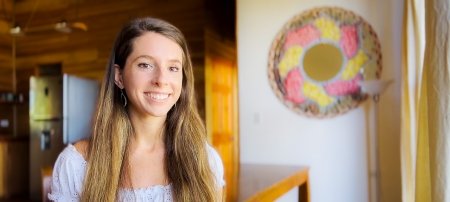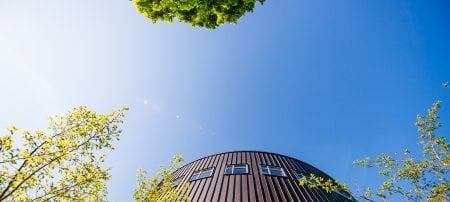Michigan Tech Alum Shares Nobel Peace Prize
Susann Nordrum knew that her work with the United Nations’ Intergovernmental Panel on Climate Change (IPCC) was important to a safe and healthy future for the world. She didn’t know that it was going to win a Nobel Prize.
After Nordrum graduated from Michigan Tech summa cum laude in chemical engineering in 1986, she went to work for Chevron. There, she led development of the SANGEATM Energy and Greenhouse Gas Emission Estimating System, a software tool for estimating greenhouse gas emissions. When the American Petroleum Institute, a trade organization for the petroleum industry, took on the task of developing methodologies for greenhouse gas emissions estimating, Nordrum spearheaded their effort. Then she worked with the International Petroleum Industry Environmental Conservation Association on their greenhouse gas inventory guidelines.
So, when the U.S. State Department asked the API and the IPIECA to nominate an American to help update the IPCC’s Guidelines for National Greenhouse Gas Inventories, Nordrum was their logical choice.
Working with the IPCC was an eye-opener, says Nordrum. “I’ve spent my career in industry, and it was very interesting to see things from the perspective of government regulators. There are different challenges when you’re on the outside looking in and trying to understand something as complex as a petroleum refinery.”
Nordrum served as lead author on a chapter of the 2006 Guidelines for National Greenhouse Gas Inventories that examined “fugitive emissions”—the emissions produced by oil production and refining to make petroleum products. She was a contributing author on another chapter that looks at the capture and containment of carbon dioxide, which is the focus of her current work at Chevron.
“I started by figuring out how big the problem is, and now I’m working on solving it,” she explains.
The 2006 guidelines were part of the IPCC’s work that shared the 2007 Nobel Peace Prize with former vice president Al Gore. The award recognized their efforts to compile and disseminate information about man-made climate change, to lay the groundwork for rational policy-making.
The day the Nobel Peace Prize was announced, Nordrum arrived at her Chevron office in northern California to find an email from Taka Hirashi, Chair of the IPCC Guidelines effort, congratulating the authors and editors of the guidelines. “You all are winners of this prize,” he said.
Nordrum praised the IPCC for reaching out to the petroleum industry to help develop the greenhouse gas guidelines. She also had high praise for R. K. Pachauri, chairman of the IPCC for the effort he made to promptly notify and thank every one of the several hundred scientists who worked on the report.
The chemical engineering alumna credits her Michigan Tech education for preparing her to do Nobel Prize-winning work. “The practical part, the hands-on experience in the unit operations lab, was priceless,” she says.”
Nordrum now is working on new and better ways to capture the carbon dioxide from petroleum emissions and sequester them, which means putting them far below the surface of the Earth.
“At the moment it is prohibitively expensive to capture the carbon dioxide,” she explains. She hopes to help find more efficient and cost-effective methods, such as oxygen-firing of heaters and boilers. “It’s a neat solution,” she remarks, “because the oil came from under the ground, and we are putting the carbon back where it came from.”
Nordrum hopes that her work with the IPCC will help convince the world to take climate change and greenhouse gases seriously and to work together to solve the problem.
Michigan Technological University is a public research university founded in 1885 in Houghton, Michigan, and is home to more than 7,000 students from 55 countries around the world. Consistently ranked among the best universities in the country for return on investment, Michigan’s flagship technological university offers more than 120 undergraduate and graduate degree programs in science and technology, engineering, computing, forestry, business and economics, health professions, humanities, mathematics, social sciences, and the arts. The rural campus is situated just miles from Lake Superior in Michigan's Upper Peninsula, offering year-round opportunities for outdoor adventure.




Comments